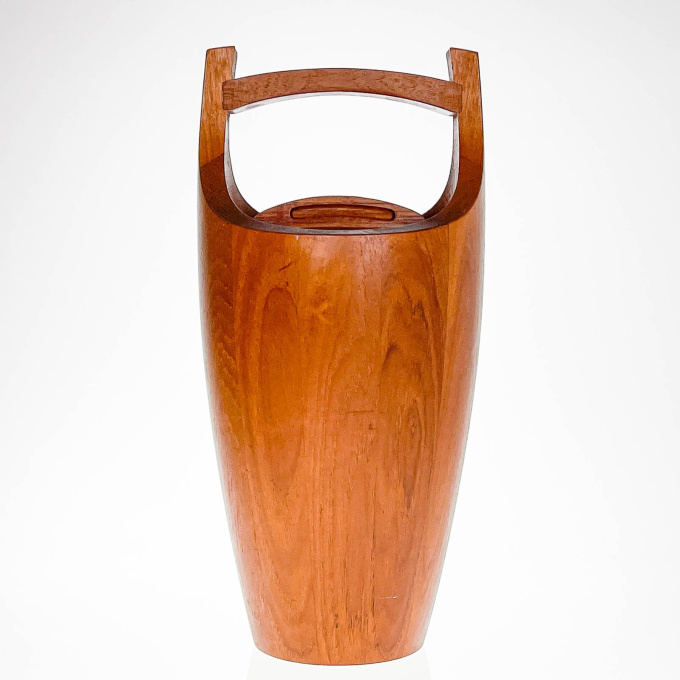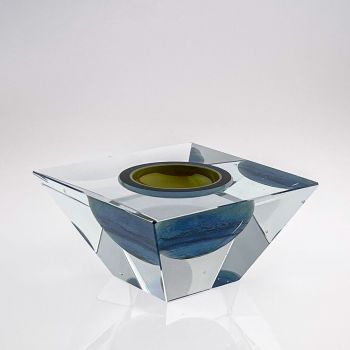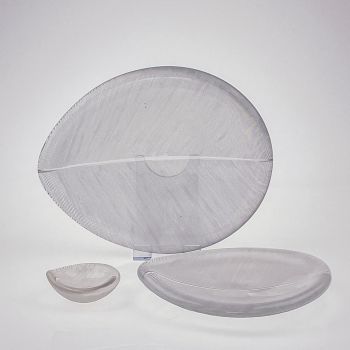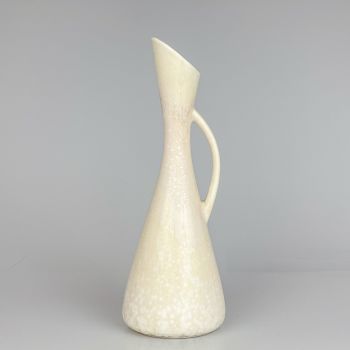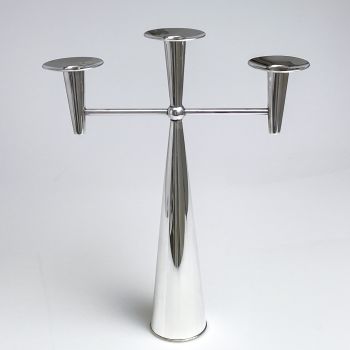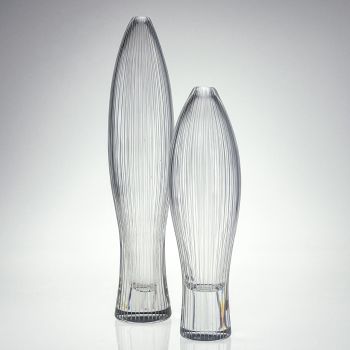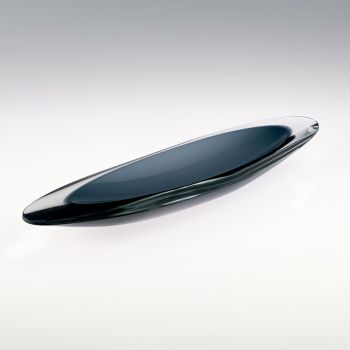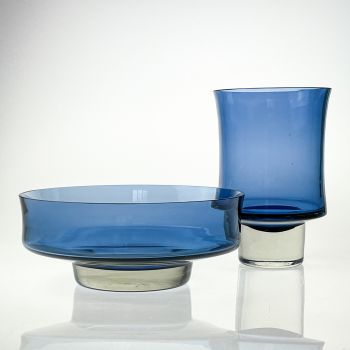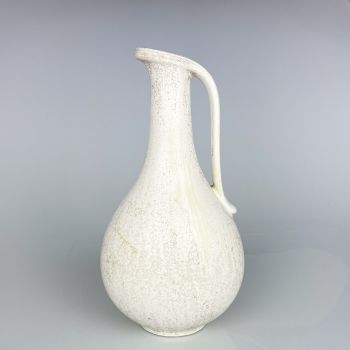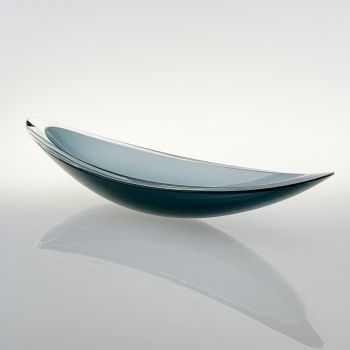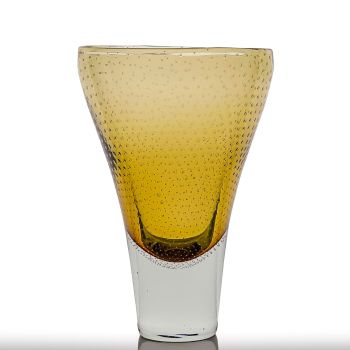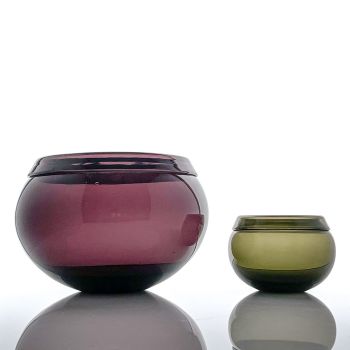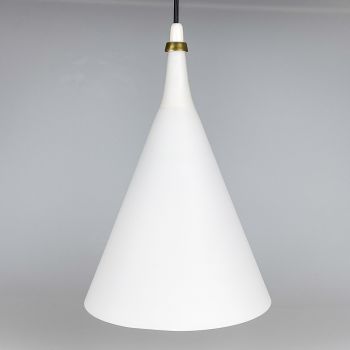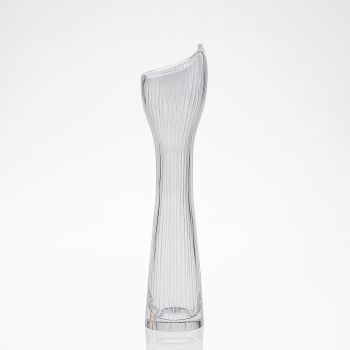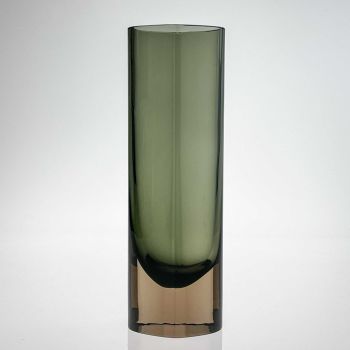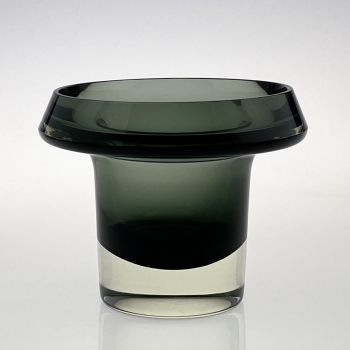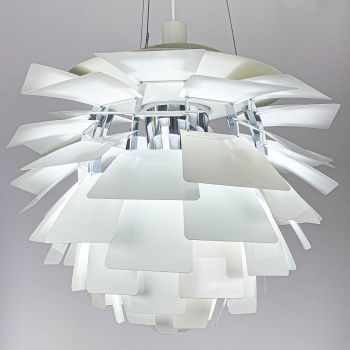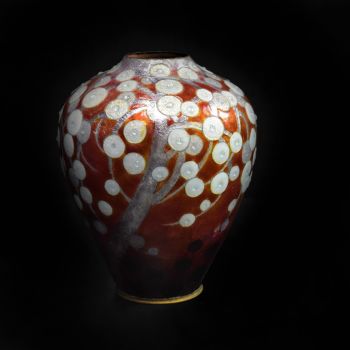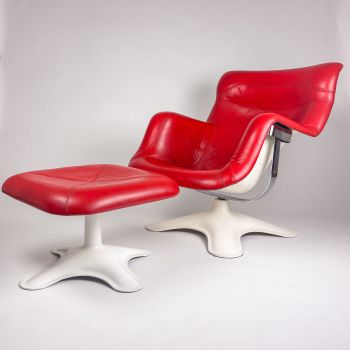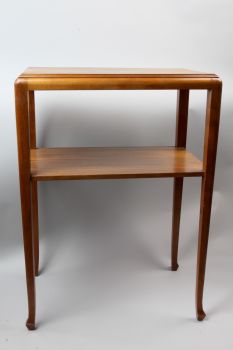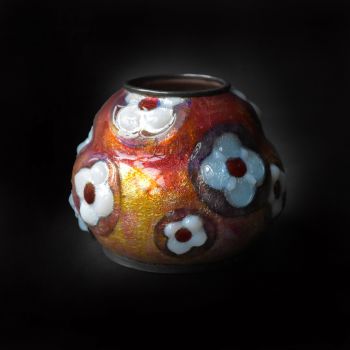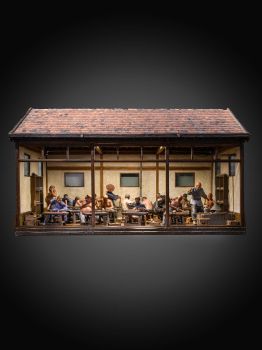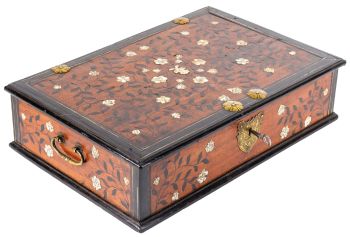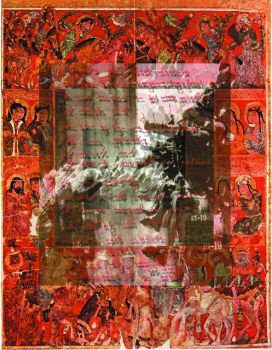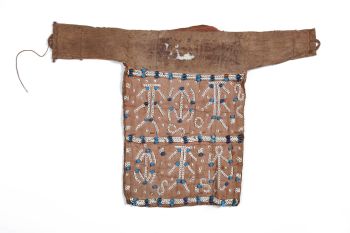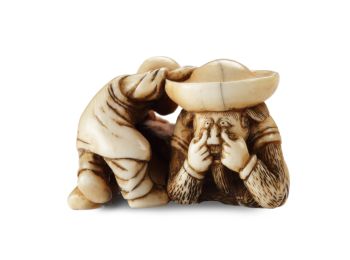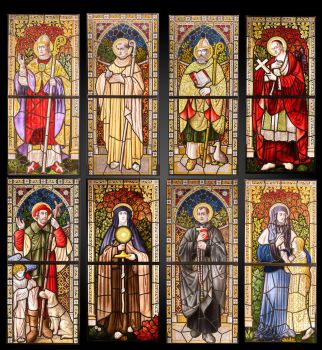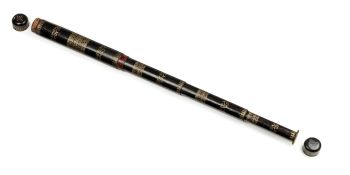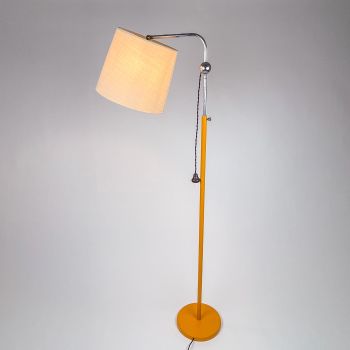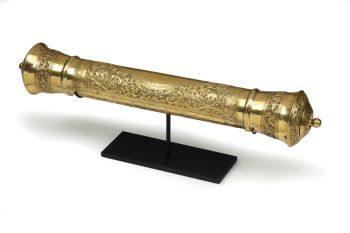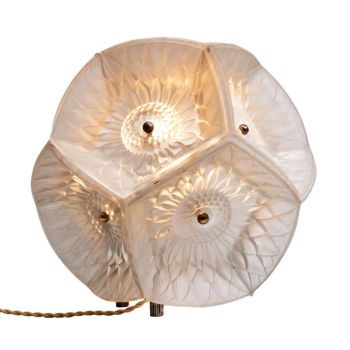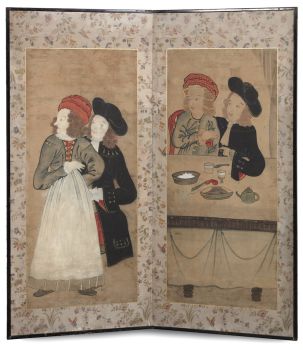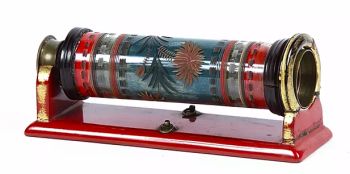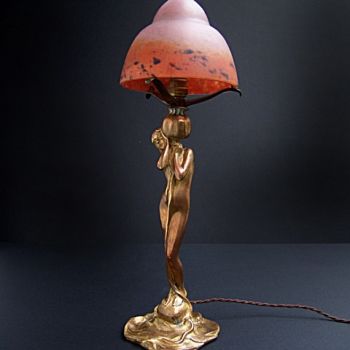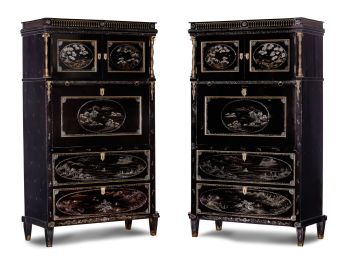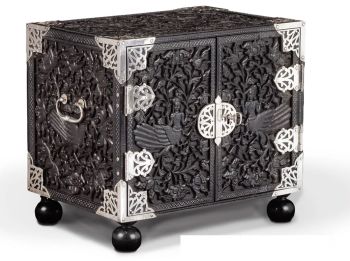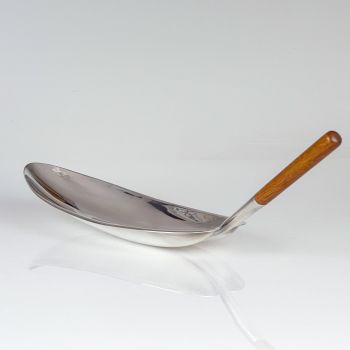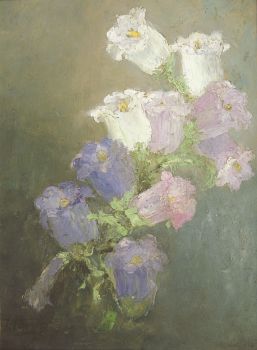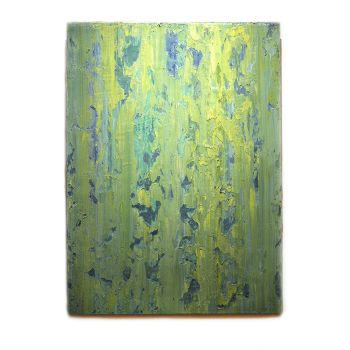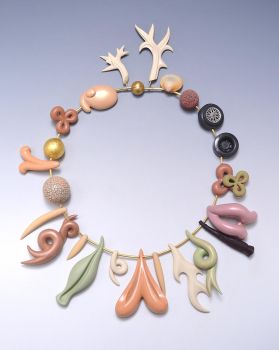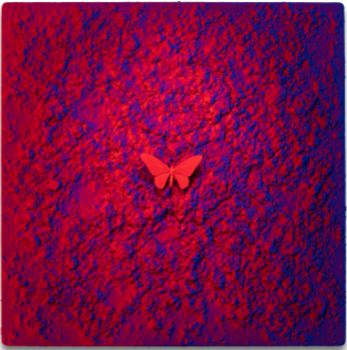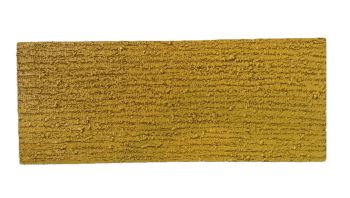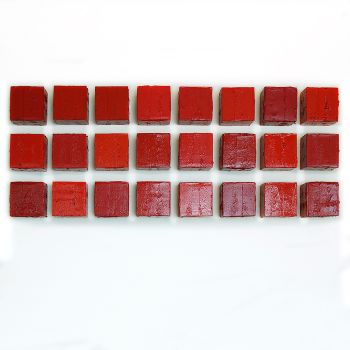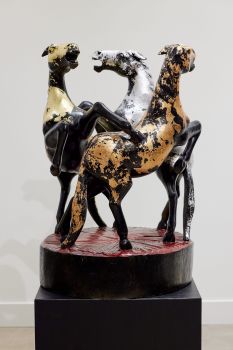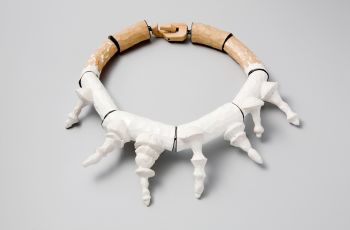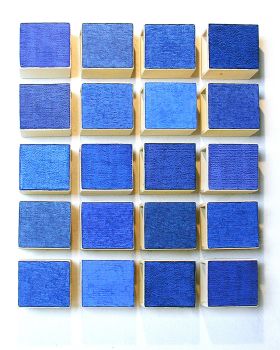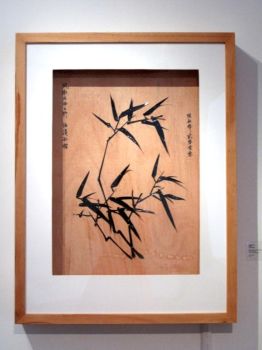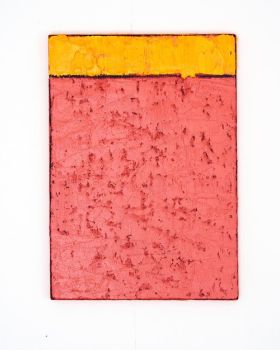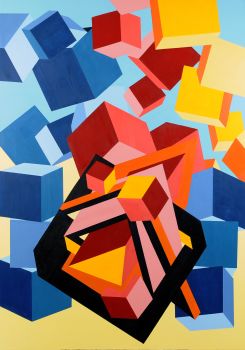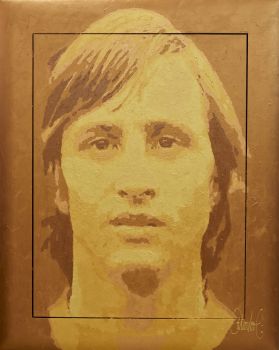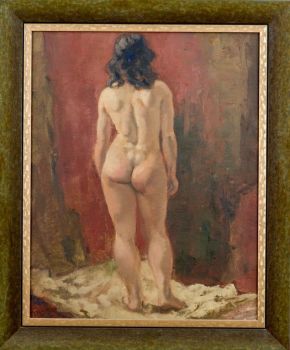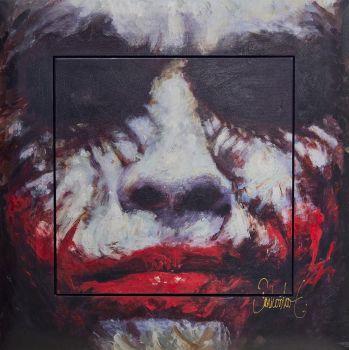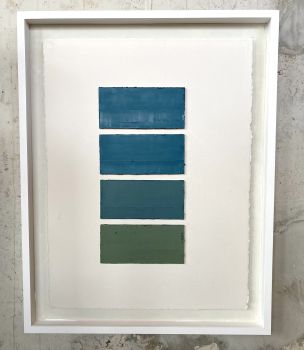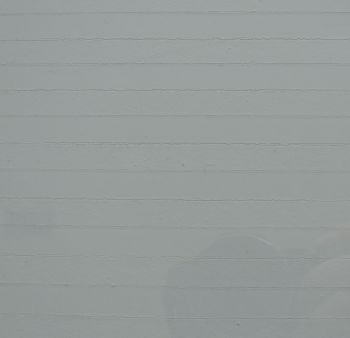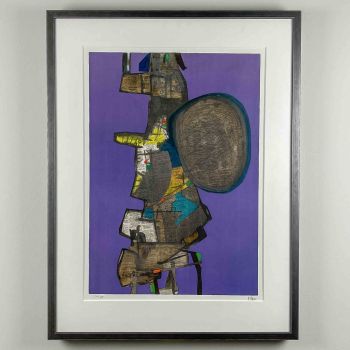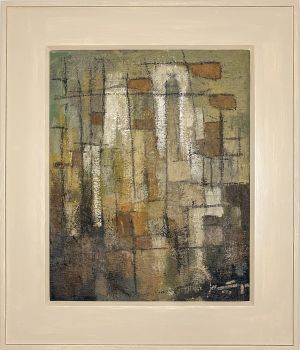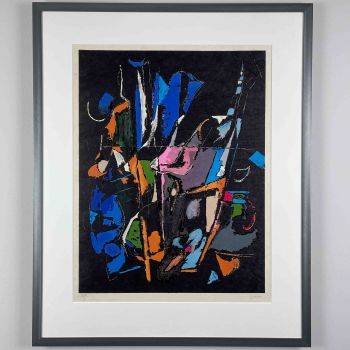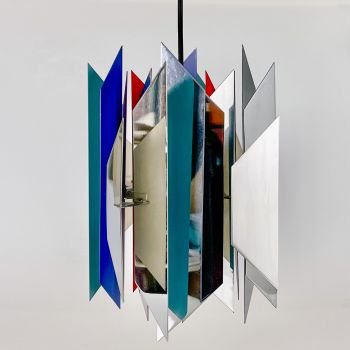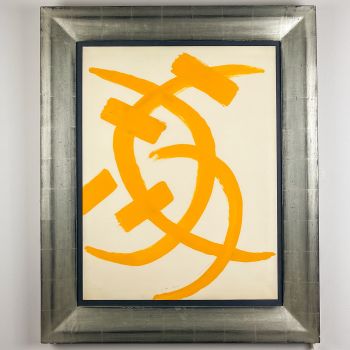A staved teakwood “Congo” icebucket – Dansk Designs, circa 1965 1960 - 1969
Jens Harald Quistgaard
MadeiraTeca
40 cm
ConditionVery good
€ 675
Van Kerkhoff Art
- Sobre arteA staved teakwood “Congo” lidded icebucket with a black plastic inner liner. Designed by Jens Quistgaard in 1955 and produced for Dansk Designs probably in the late 1950’s or early 1960’s.
These icebuckets were made in three different size ranges, this being a middle sized example. These objects were made with great craftsmanship.
Strips of solid teakwood (staves) were joined together in a traditional way to form the final shape. The craftsmanship originates from the tubing of buckets and barrels and has been practised in Scandinavia since the middle ages.
The ice bucket is branded underneath the base: “four Ducks mark” – which identifies the bucket as an early production piece – Dansk Designs Denmark – JHQ (Jens Harald Quistgaard) and ©.
About Jens Harald Quistgaard
Jens Harald Quistgaard (Copenhagen 1919 – Vordingborg 2008) was a Danish wood-, metal- and glassware designer and sculptor, known principally for his work for the American company Dansk Designs, where he was chief designer from 1954 until 1983. Jens Harald Quistgaard grew up in an artistic family in Copenhagen. His father, Harald Quistgaard, tought him sculpting at a young age. He was educated as a drawer and silversmith at the technical school in Copenhagen. His apprenticeship he served at Georg Jensen Sølvsmidie.
After World War II Quistgaard set up his own design studio in Copenhagen. His breakthrough as an designer came in 1953–54, where he fashioned the cutlery set Fjord, the first cutlery set that combined stainless steel with handles of teak.
In 1954 was awarded the gold medal at the Triennale in Milan for a saucepan design. For two more reasons 1954 became a very important year for Quistgaard. He received the prestigious Lunning Price – informally called the “Nobel price for design” – and he started to work together with the American businessman Ted Nierenberg.
Together they founded the American company Dansk Designs with Quistgaard as chief designer. His designs were an immediate success in the USA and his designs were synonymous with modern living and Scandinavian style, consisting of clean lines, sculptural form and natural materials.
From the 1960’s onward his success in The united States was followed by success in Europe and Japan. Dansk Designs started their own shop in Copenhagen, in London and in Stockholm, and Quistgaard’s designs were exhibited and sold in Tokyo, Berlin, Paris, Zürich, Melbourne, Johannesburg and many other major cities.
Quistgaard remained chief designer for Dansk Designs until the 1980’s. In 1983 he moved to Rome and in 1993 he returned to Denmark.
His work is represented in many museums all over the world, among others: The Louvre, Paris; Designmuseum Danmark, Copenhagen; The British Museum, London; The MoMa, New York City and the National Museum, Stockholm.
Marked
Branded underneath the base:
"Four Ducks" Mark – Dansk Designs Denmark – JHQ (Jens Harald Quistgaard) and ©
Execution
made for Dansk Designs in Denmark, circa 1965
Condition
Good original condition, some minor scratches, stains and dents. Wear consistent of age and use.
Literature
Mel Byars – The Design Encyclopedia, p. 605-606
Dimensions
Height 40 cm - Sobre artista
Jens Harald Quistgaard (23 de abril de 1919 - 4 de janeiro de 2008) foi um designer dinamarquês mais conhecido por suas criações para Dansk, onde trabalhou como designer-chefe de meados da década de 1950 até a década de 1980. Durante sua carreira, Quistgaard projetou mais de 4.000 objetos, dando uma importante contribuição ao design moderno.
Nascido em Copenhagen em 23 de abril de 1919, Quistgaard cresceu em uma família artística, onde seu pai, Harald Quistgaard (1887-1979), era escultor e sua mãe pintora. Aos quatorze anos, Jens Harald Quistgaard começou a experimentar fazer joias e facas. Após sua educação na escola técnica, ele foi aprendiz de artesãos renomados, como Georg Jensen e Just Anderson.
Durante a Segunda Guerra Mundial, Quistgaard foi ativo na resistência dinamarquesa. Após a guerra, seus projetos foram exibidos em várias exposições na Europa e nos Estados Unidos.
Um ponto de virada em sua carreira veio com a criação do conjunto de talheres "Fjord" em 1953, no qual Quistgaard combinou madeira de teca com aço inoxidável. O projeto chamou a atenção do empresário americano Ted Nierenberg, que abordou Quistgaard com a proposta de produzir o conjunto de talheres em larga escala. Foi assim que a Dansk International Designs nasceu em 1954, com Quistgaard nomeado designer-chefe. O conjunto de talheres Fjord foi lançado nas lojas americanas em 1956 e rapidamente se tornou um grande sucesso.
Além de talheres, Quistgaard também projetou uma extensa coleção de moinhos de pimenta, saladeiras e tábuas de corte para Dansk. Ele era conhecido por usar madeira em seus projetos, especialmente teca, mas também madeiras mais exóticas, como wenge, cocobolo e jacarandá.
Quistgaard recebeu vários prêmios de prestígio por seus designs inovadores, incluindo medalhas de ouro e prata na Trienal de Milão de 1954 e o Prêmio Lunning. Em 1958, recebeu o Prêmio Neimann Marcus. Quistgaard continuou a trabalhar em Dansk até a década de 1980, onde criou continuamente designs inovadores e atemporais.
O legado de Jens Harald Quistgaard vive no mundo do design, onde suas criações atemporais e funcionais ainda são apreciadas por entusiastas de todo o mundo. Sua influência na comunidade de design dinamarquesa e internacional será lembrada para sempre.
Você está interessado em comprar esta obra de arte?
Artwork details
Related artworks
- 1 - 4 / 24
Artista Desconhecido
The Stamford Raffles Secretaires.1800 - 1813
Preço em pedidoZebregs & Röell - Fine Art - Antiques
1 - 4 / 24- 1 - 4 / 24
- 1 - 4 / 12

